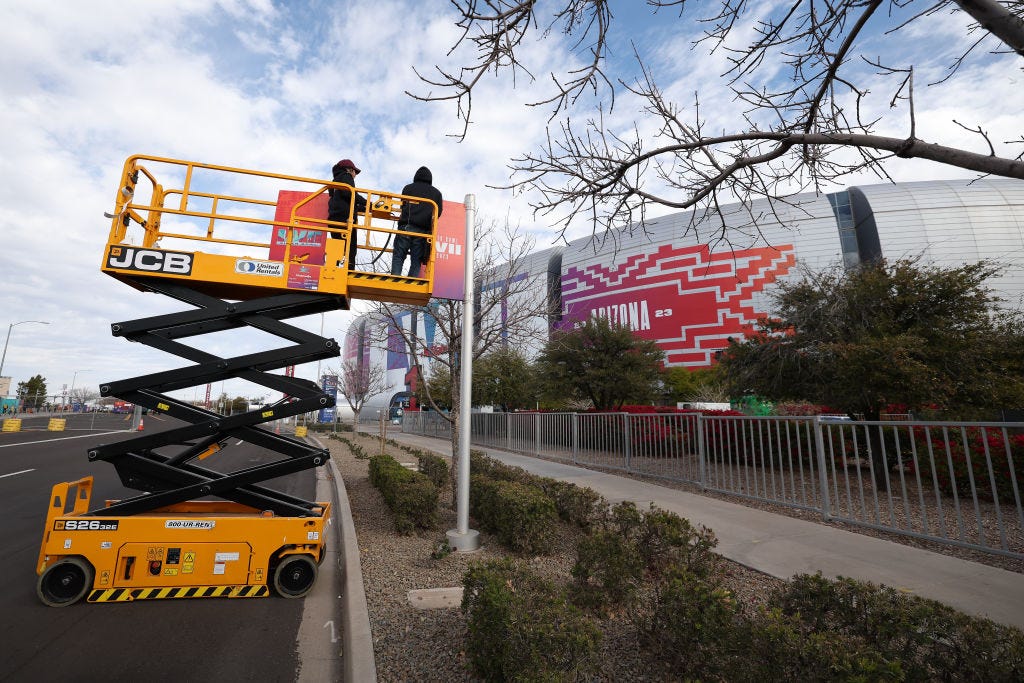Do Cities Benefit From Hosting the Super Bowl?
Super Bowl LIX will be hosted in New Orleans once more, a product of a competitive bidding process that chose an NFL favorite. Is it worth it for cities to bid for the right to host the Super Bowl?
This year, New Orleans will host Super Bowl LIX and re-establish itself as one of the premier hosting destinations for the Super Bowl, part of the NFL’s somewhat regular rotation of key hosting cities aside from an occasional year given to cities that play ball and build their teams a new stadium.
Typically, sportswriters and fans love the New Orleans experience and this year seems no different. Those experiences have been catalogued in articles and in social snippets shared on Instagram or Twitter. It very much seems like the early returns on advertising New Orleans as a tourist destination are positive — a necessity after the traumatizing attack the city suffered on New Year’s Day.
But the Super Bowl isn’t a typical event. It’s expensive to host an event the size of the “big game”. Cities pour millions into various necessities, like temporary infrastructure for the event, redirecting traffic, paying overtime for police and civil service workers and setting up welcome decorations.
On top of that, cities have an incentive to make sure that the city looks “presentable” to visitors and the cameras that will be there. That means more investment in street cleaning, garbage collection and specific costs like cleaning up graffiti.
Given the NFL’s exorbitant list of demands for host cities, is it worth it for a city to host the Super Bowl?
The NFL Loves Its Studies
There are a lot of positive headlines about the economic impact of an event like the Super Bowl. But it is important to keep in mind that many of the encouraging studies about the impact that an NFL event can have on a city are commissioned by the NFL, which can and likely does influence the results. This can guide a researcher’s methods — like choosing more generous assumptions, isolating friendlier variables, using generous comparison sets and so on.
A number we see cited by the NFL and cities celebrating their ability to host the Super Bowl is $726 million, a reference to an estimate produced by Anthony Evans at the W.P. Carey School of Business at Arizona State for Super Bowl LVII — the prior Chiefs-Eagles Super Bowl.
The document that produced this figure was produced by Evans for the Arizona Super Bowl Host Committee and the Arizona Commerce Authority. Those two groups hired the Seidman Research Institute, the consulting arm of the business school at ASU. Notably, it is difficult, if not impossible, to find the paper Evans is citing; other research citing it refer to articles about it rather than the report itself. Instead, we learn about it via secondary reporting – it’s not even available on Evans’ biography page at Arizona State University under his listed, published research.
In Minneapolis, we were treated to an analysis produced by Rockport Analytics on behalf of the Minneapolis-St. Paul Host Committee, who paid for the report. Rockport concluded through a slideshow, but not a publicly accessible paper, that Super Bowl LII produced a net economic impact of $400 million for the Minneapolis-St. Paul area.
There is perhaps a reason that Rockport Analytics has been hired by multiple Super Bowl Host Committees as well as the Orange Bowl Committee. To their credit, they are somewhat detailed in their methodology, citing multiple data sources to estimate visitor spending including internal sources (their own surveys) as well as external sources.
Interestingly, many officials, like chairman of the Arizona Super Bowl Host Committee David Rousseau, cite an even larger number: $1.3 billion. That number comes from the Evans report mentioned above and was meant to signify gross output of economic activity and not contributions to gross domestic product – a number that Evans himself characterized as a poor one to use.
Evans argues that the gross economic output was used to evaluate the impact of local events in the past, the U.S. Bureau of Economic Analysis concluded that it was a poor estimate on the effect an event has on local income, substituting in a more precise measure like local GDP.
So, even for consultancy firms paid to provide evidence that the Super Bowl is worth hosting, there are limits to how much they’ll stake their academic reputation on that claim.
The arguments put forth by proponents of big event hosting are pretty obvious – the Super Bowl brings in visitors from all over the country who buy food, lodging and other local services, all of which are taxed by local governments. The anticipation of economic activity produces short-term employment and the capital provided to businesses
Does that hold up?
What Are the Costs of Hosting the Super Bowl?
In the NFL’s 2013 bid book (obtained by the Star Tribune), distributed to city Host Committees in preparation for their bids to host the Super Bowl, the phrase “no cost to the NFL” appears 192 times in the 154-page document (while the phrase “at no cost” without the words “to the NFL,” but still in reference to the NFL, appears an additional 17 times). Costs are “waived” at least seven times as well.





